Dr. Susan Love has never been cautious to share with the public her thoughts and opinions regarding socialized medicine, controversial mammography practices in the U.S., breast cancer research fallacies, and the history lesbians have carried on their backs since the early days of AIDS. Her “breast cancer bible” book, Dr. Susan Love's Breast Book, has just been released in its 5th edition skin (20 years after the 1st edition was printed in 1990). While some things have changed in the past 20 years since the book’s original printing, Love reminds us in this interview that some things have remained the same…and need to be changed.
The Dr. Susan Love Research Foundation is a non-profit venture working to eradicate breast cancer and improve the quality of women's health through innovative research, education, and advocacy. In addition to The Dr. Susan Love Research Foundation, Love is a Clinical Professor of Surgery at the David Geffen School of Medicine at the University of California, Los Angeles (UCLA). Former United States President Bill Clinton appointed the highly-accredited doctor to the National Cancer Advisory Board. Love is regarded as the crème-de-le-crème of women’s health specialists in America and is spearheading a new study in conjunction with Avon. She wants you to get involved.
Do you think that lesbians are more at risk to develop breast cancer than our female counterparts not in the lesbian community?
I think that breast cancer is something that really doesn’t discriminate one way or the other. It may be slightly more common in the lesbian community because lesbians have less children. Apart from that, really, there are no particular risk factors that are specific to the lesbian community in comparison to other communities. The other community that we really need to study and haven’t yet is the transgender community because there they are taking hormones and we have no idea what the effect of that is – whether it’s safe or not. We’re actually hoping to do some studies. I’m working to try to both get funding and get it set up because it is an area that I am definitely trying to study much more because it has been totally ignored.
Speaking of studies, you have been at the forefront of quite a few studies that have been very monumental in advancing healthcare practices. Can you share with us some of your recent study findings?
Well, one of my frustrations is that we have been studying breast cancer for over 20 years and yet, we still don’t know the cause of breast cancer. My book [Dr. Susan Love's Breast Book] just came out with the 5th edition (which is 20 years after the 1st edition) and, with all the pink, all the money, and marching and whatever, we don’t know what the cause of breast cancer really is - still. That’s really amazing and incredible.
I think that part of the problem is that we have become complacent. We just keep on doing the same thing over and over again. Not looking at – how can we change things and how they are? How can we do things completely different? I mean, look at cancer of the cervix. We have a vaccine for cancer of the cervix. That’s really amazing. Yet, we have no idea what causes cancer of the breast and we’re still cutting off normal body parts for cancer of the breast. I mean, that’s crazy.
More on next page...
\\\
(continued)
It does seem like all of our efforts to wear the pink ribbons, march and sing in unity goes into some sort of black hole. We have the awareness down, but where is the research?
Exactly. I think we’re all aware [laughs]. I think we’re pretty well aware! In this country anyway! It’s pretty hard, particularly in October, to not be aware. Especially with pink on the horizon! So, I think we sort of got so focused on awareness and have been doing that for so long, but now we can move on. Let’s move on from just being “aware” to trying to figure out how to stop it. There is a growing movement happening of frustration among the advocacy community. We have the Love/Avon Army of Women where we are recruiting a million women who are willing to participate in research and, likewise, the National Breast Cancer Coalition just launched the Breast Cancer Deadline for 2020. All of these efforts are really attempts to say – enough already. Enough awareness. Enough pink ribbons. Enough of that. Let’s get focused and just stop this. October can become another disease month. We’re happy to give the month away!
Where do you feel the disconnect is between research and finding a cure?
A lot of research has been funded, but it hasn’t been done in a concerted effort to achieve something. In other words, you just put money out and say to the scientist, “What do you think you would like to study?” as opposed to stating, “These are the issues we need to understand.” So, one of the things we’re doing with the Love/Avon Army of Women is we’re launching the Health of Women Study later this month. So, that will collect information on healthy women – most of the women in the study are healthy (80% of them have never had breast cancer) – because we really want to start looking at healthy women and compare them to women who have had breast cancer.
Then we’re going to start asking these questions and we’re also going to ask these women what they would like answered. Sometimes the good ideas actually don’t come from scientists. Cancer of the cervix – one of the ways they figured out that it was sexually transmitted was because people recognized that sometimes a guy’s first wife died of cancer of the cervix and then his second wife died of cancer of the cervix. They said, “Hmm, I wonder if there’s something there?” Well, we’ve been looking at the same risk factors for breast cancer my whole career and they only explain about 30% of breast cancer cases. So, we’re obviously missing something. Most women who get it have no risk factors. So, we had to start looking at some crazier things and some other ideas. Getting the women involved as part of the research study to give us their ideas will help that effort along as well.
Women can get involved in the Health of Women Study right from their own homes, correct?
That is correct. It’s a great opportunity. The nice thing about doing this online the way we’re doing it is that it’s open to all different communities and we’ve really been able to do a lot of different research. For example, there was one study we did that was specifically focused on the lesbian community and people had trouble recruiting, but because we are national and had this whole Love/Avon Army of Women, we were able to get them everyone they wanted right away.
More on next page...
\\\
(continued)
Traditionally, one could argue that the media has never really paid enough attention to inclusiveness within the lesbian community when dealing with these studies. In return, lesbian women will choose not to get involved because they don’t feel like they are part of the community as a whole.
We need to figure out what issues are different and what is the same. Sometimes we think, “Oh, well, I’m gay so I don’t really have a risk for this, that, or the other thing” which is not always true. So, we need to look on both sides and try to answer these questions. I mean, one of these things about the lesbian community is that it is very altruistic. I mean, all of the initial work done with AIDS was really done by the lesbian community when it wasn’t a disease that was affecting them at all. It was the lesbians who were out there when our brothers were dying. In terms of things like breast cancer, we’re all at risk and the more we can figure out about this disease the better.
What is different in regard to breast cancer at this point versus 20 years ago in 1990 when your book was first published?
Well, the level of decision-making that had to be done in the old days was really very low because there weren’t that many decisions. You had a mastectomy, we were just starting to talk about lumpectomy and radiation in those days, and that was about it. Now, there are millions of decisions. It’s not just are you going to keep your breasts or have them removed, but if you are going to keep your breasts, are you going to have octoplastic surgery, regular surgery, partial-breast radiation or co-breast radiation…if you’re going to have a mastectomy, do you want to have reconstruction and are you going to have it immediately or do you want it to be delayed, etc. Do you want a nipple stern or not? It’s getting amazingly complicated.
We’ve figured out that not all breast cancers are the same and that there are five or six different kinds of breast cancer and each one is treated differently. It’s a little bit like treating bacterial infections or something. If you have a staph infection and you take a drug for strep, it’s not going to work. You need to have the right drug for the type of tumor that you have. In breast cancer, it’s the same. We now need to have the right drug for the type of cancer that you have. You need to stop and figure out what kind of cancer you actually have and match it. It’s not one-size-fits-all anymore. There is not just one kind of treatment. Sometimes chemo is better and sometimes it’s not. Sometimes chemo doesn’t work at all. That’s one issue we’ve learned.
The other issue is that we’re finding that it’s not just about having a cancer cell. Finding cancer by itself is not the whole deal. You have to have the mutated cell in a local environment of the breast that’s egging it on. If you don’t have both, you’re not going to have cancer. It’s a little bit like taking a kid out of a bad neighborhood and away from the drive-by shootings and putting him out in the country and taking him out to the farm, etc. The same kid could turn out differently. One of the problems with mammography is that we are finding a lot of cancers that aren’t really cancers because they are not in the right neighborhood. Exercise can help prevent cancer and not taking hormones – things like that are not directly related to cancer, but it changes the neighborhood.
More on next page...
\\\
(continued)
How are you positioned on the new mammography recommendations in the U.S.?
I think it’s absolutely right. We’ve oversold mammography and it’s never been shown to work in women under 50 years old. There’s a risk to doing it. The risk is not just finding things that aren’t really cancer and ending up treating them, but it’s also the radiation. If you start getting mammograms every year starting at the age of 40, that radiation is accumulative. Now, under 40, you actually cause more cancers – 40-50 it’s about a wash – and then between 50 and over 50, then it starts to become worth it. It’s true that we should not be routinely doing mammograms on women under 50. We are the only country that does it. I think it has more to do with money than it does about saving women’s lives. We’ve sold this notion that if you just get a mammogram and “the best prevention is early detection.” Well, detection is not prevention. It’s finding a cancer that is already there. The problem is that we’re finding a bunch of cancers and many of them are never going to do anything. At the same time, we’re not preventing the bad ones.
Can you explain a little bit about the politics involved with medicine?
I think we need to realize that nothing in medicine is pure. In our country, we have a fee-per-service system so the doctors get paid more the more they do. So, we do more biopsies than any other country. We give more chemo. We prescribe more drugs. Yet, we don’t have better results. That’s the problem with the fee-per-service healthcare system. You know, we don’t have the best medical care in the world by any means. If you have insurance, you have too much medical care with the risks of all of that, but if you don’t have insurance you have too little. The countries that have the best healthcare are the countries that have the best “socialized medicine.”
We’re one of the only countries where there is no regulation of doctors. They can do whatever they want to whomever they want and they can charge whatever they want. No one is looking over their shoulder. You can only lose your license if you’re drunk, on drugs or have sex with your patients. Those are the only three things where you will lose your license. You can conduct bad medical practice, and every doctor knows a lot of other doctors who are terrible, and they are still able to practice. The nurses know [the good and bad doctors] because they get to see what really happens and it’s really terrible. Whereas, where you have a system that is government-run, then you actually have some accountability where people are actually looking over their shoulders.
Would you mind sharing with us a little bit of your personal life as a member of the LGBT community?
I’ve been with my wife for 28 years. We got married in those illegal marriages in San Francisco and then those were nullified and then we got married again right after the Supreme Court case. We have a 22-year-old daughter and we were actually in the Supreme Court case in Massachusetts for second-parent adoption back in 1993. She is just graduating from college. Basically, I have always felt that the reason I am so successful is because I am a lesbian because it really freed me up to speak the truth. First of all, when I first graduated, there were no women surgeons. So, nobody was sending me patients anyway. Then when I came out as a lesbian, I knew for sure that I would never be the Chief of Surgery at North General or anything like that. So, therefore, it allowed me to be free to not worry about what I was “supposed” to say and really speak the truth for my patients and the public and not the status quo. Really, for me, that has been my power. I can do things my own way and not get sucked into trying to be accepted by the greater system.
Get more from Sarah here!
Be SheWired's Friend on MySpace!











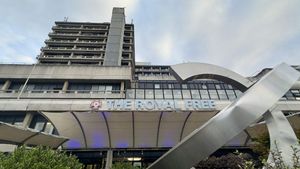

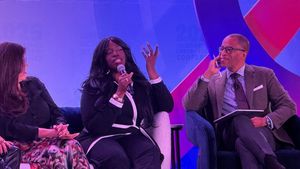

















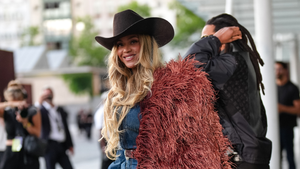








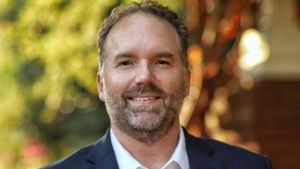
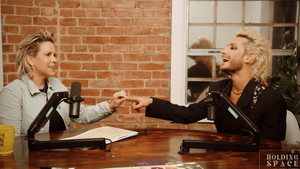



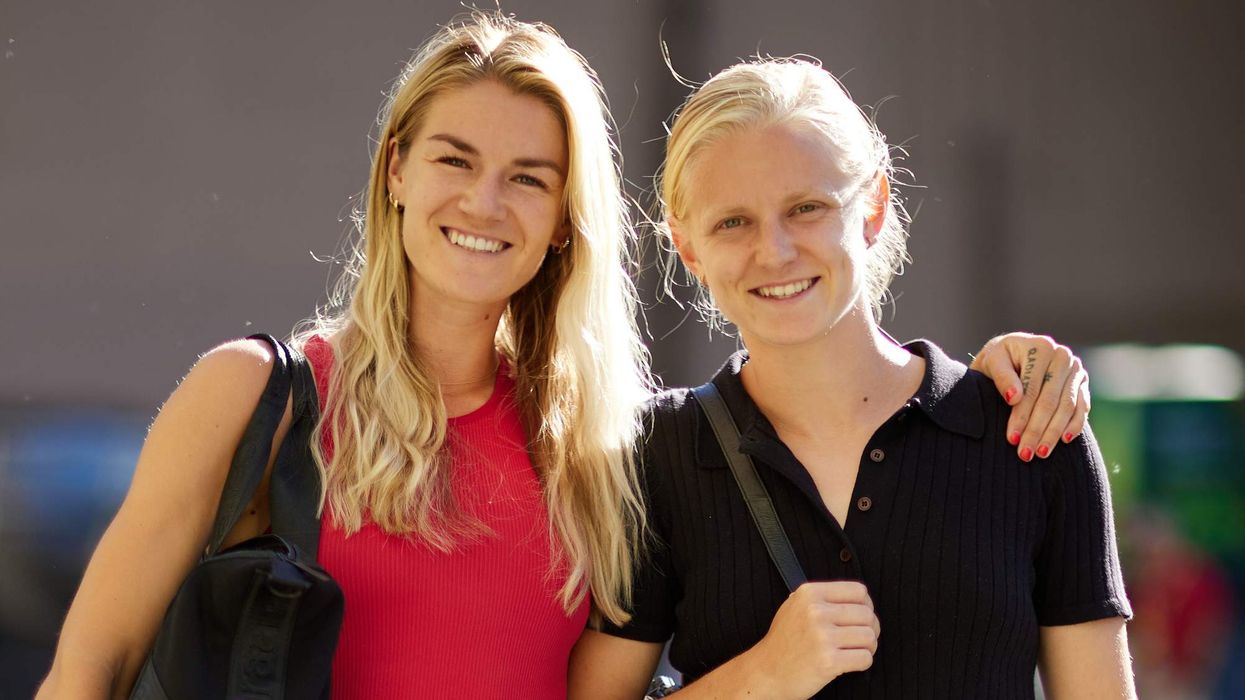


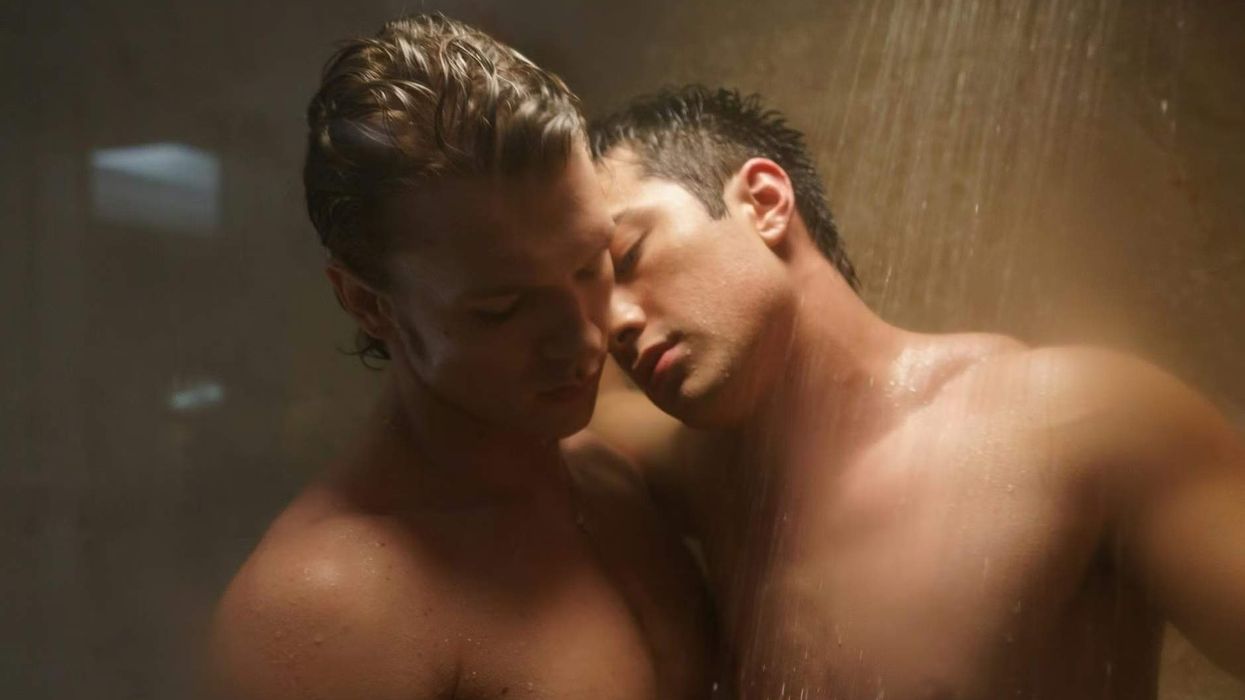





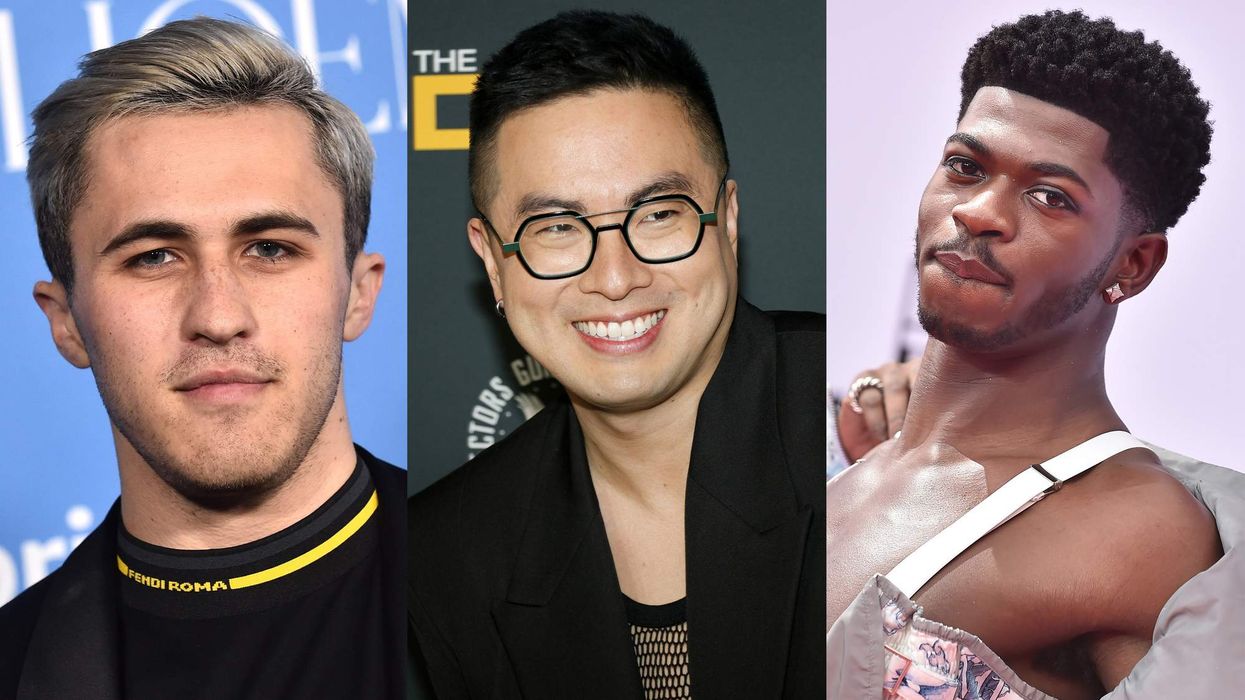































 Cindy Ord/Getty Images
Cindy Ord/Getty Images























